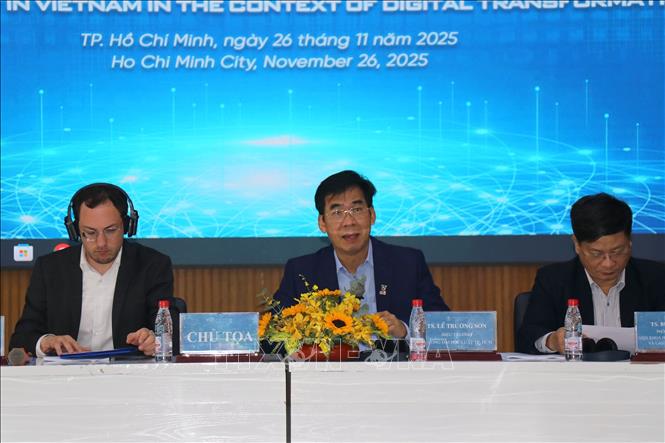
This is the common opinion of experts, scientists , lecturers from many universities and state management agencies, social organizations, and enterprises at the International Workshop "Legal framework and policies to promote decent employment development in Vietnam in the context of digital transformation" in Ho Chi Minh City on the morning of November 26, organized by the Friedrich-Ebert-Stiftung Foundation (FES-Germany) in collaboration with Ho Chi Minh City University of Law.
Emphasizing that digital transformation has become an important driving force for economic development, Dr. Le Truong Son, Rector of Ho Chi Minh City University of Law, also pointed out many challenges when artificial intelligence and automation are rapidly changing the employment structure and labor skills. Therefore, building a legal framework and policies to ensure adequate employment for workers is an urgent task to ensure that all workers are given fair, safe and comprehensive development opportunities.
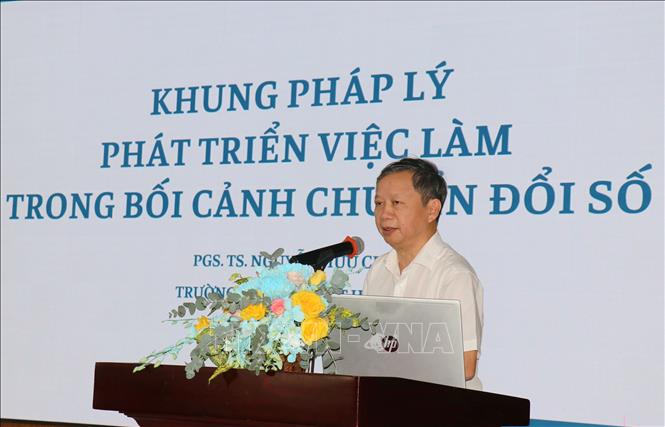
Associate Professor, Dr. Nguyen Huu Chi, Hanoi Law University, stated that Vietnam's labor law has improved significantly; but it is still limited because it is based on the traditional employment model, not covering the forms of platform labor and freelance labor in the Gig economy (an economic model based on temporary, flexible and short-term contract jobs).
Analyzing issues related to digital employment data management, labor protection against algorithmic dependence or retraining policies, Associate Professor Nguyen Huu Chi proposed developing a flexible and inclusive legal framework, strengthening digital labor market governance, expanding social security to support workers and businesses to adapt sustainably; in which, emphasizing the improvement of labor laws, expanding social security framework, perfecting digital transformation institutions, improving the capacity of management agencies...
Dr. Nguyen Tat Nam, Independent Expert, Arbitrator of the City Labor Arbitration Council and Master Nguyen Tat Thang, representative of the Ho Chi Minh City Department of Home Affairs, said that Vietnamese enterprises still face difficulties in high-quality human resources, finance and data management. Digital transformation helps increase efficiency, transparency and optimize labor allocation; at the same time, it is proposed to train digital skills, protect personal data, support digital enterprises and link employment - vocational training - unemployment insurance policies.
Delegates also highlighted the impacts of digital transformation on workers with disabilities, female workers, older workers and children; risks of lack of support tools in the digital environment, algorithmic bias, high skill requirements and risks of exploitation on platforms; proposed improving laws, increasing responsibility of technology enterprises and expanding social security for vulnerable groups.
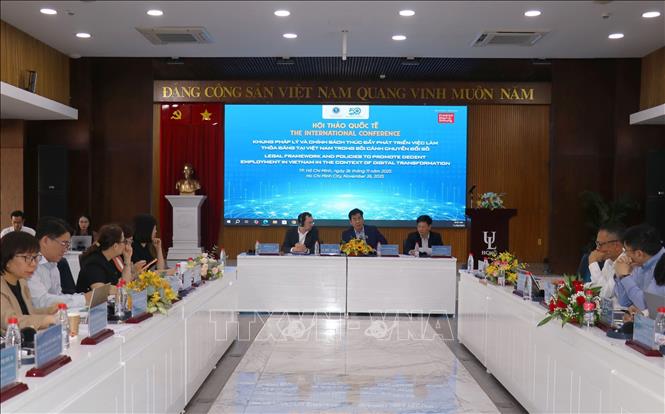
Also at the workshop, delegates discussed many in-depth issues on legal regulations, labor and employment policies in the context of digital transformation, proposed scientific and practical solutions to promote adequate employment development, ensure workers' rights, and stabilize the Vietnamese labor market. Delegates also analyzed multi-dimensionally the legal framework for employment development; the impacts of digital transformation in supporting labor stability in enterprises; models to support sustainable employment during digital transformation... opening up new approaches for policy-making agencies, researchers and the business community to contribute to building a fair, inclusive and sustainable labor market in the digital age.
Source: https://baotintuc.vn/xa-hoi/thuc-day-ky-nang-nghe-nghiep-kha-nang-thich-nghi-cua-nguoi-lao-dong-trong-chuyen-doi-so-20251126134602141.htm



![[Photo] VinUni students' emotions are sublimated with "Homeland in the Heart: The Concert Film"](/_next/image?url=https%3A%2F%2Fvphoto.vietnam.vn%2Fthumb%2F1200x675%2Fvietnam%2Fresource%2FIMAGE%2F2025%2F11%2F26%2F1764174931822_10-3878-jpg.webp&w=3840&q=75)



![[Photo] Close-up of heavy damage at the school located on the banks of the Ban Thach River](/_next/image?url=https%3A%2F%2Fvphoto.vietnam.vn%2Fthumb%2F1200x675%2Fvietnam%2Fresource%2FIMAGE%2F2025%2F11%2F26%2F1764152130492_ndo_bl_img-8188-8805-jpg.webp&w=3840&q=75)













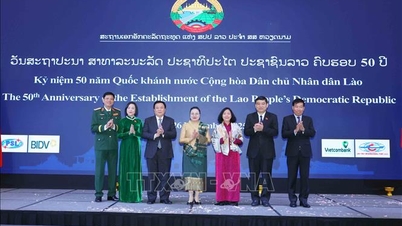



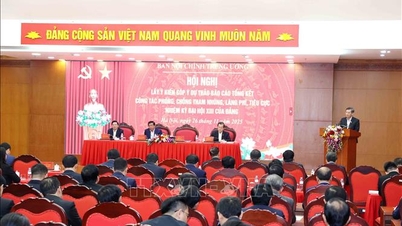





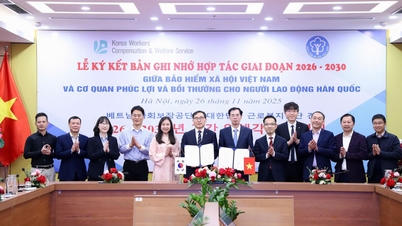
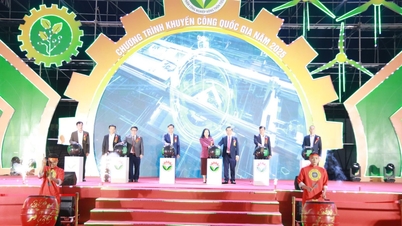
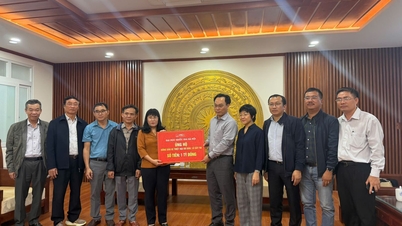


























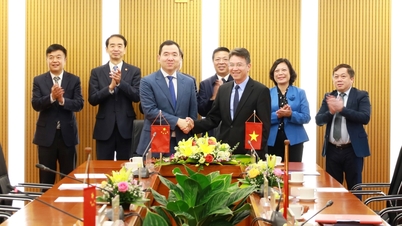




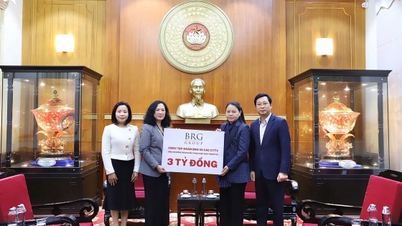










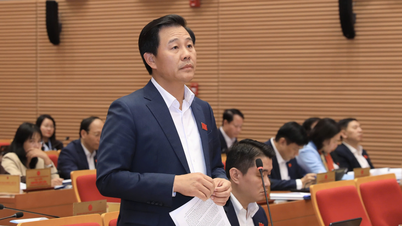
![[Photo] Opening of the 28th Session of the Hanoi People's Council](https://vphoto.vietnam.vn/thumb/402x226/vietnam/resource/IMAGE/2025/11/26/1764155991133_image.jpeg)










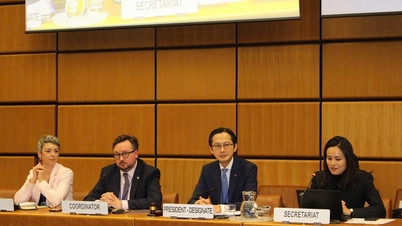




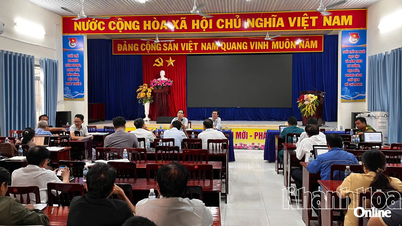















Comment (0)